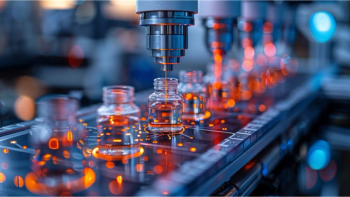
Waters Announces Update to its Empower Software to Support Biologics Data Acquisition
In a press release on Tuesday May 6th, 2025, Waters Corporation, an analytical instrument, separations technology, and software manufacturer, announced several updates to its Empower software.
In a press release on Tuesday May 6th, 2025, Waters Corporation, an analytical instrument, separations technology, and software manufacturer, announced several updates to its Empower software.
According to the press release, these updates are designed to help improve this software’s ability to conduct and process biopharmaceutical analytics with the integration of multi-angle light scattering (MALS) and differential refractive index (RI) detectors from its Wyatt Technology portfolio. This move was designed to reinforce Waters Corporation’s commitment to improving quality control (QC) and data acquisition workflows for biologics, expanding the Empower software’s ability to manage critical quality attributes (CQAs) and improve regulatory compliance (1).
Empower Software is one of Waters’ popular products. It is a chromatography data system (CDS) that is designed to run samples and deliver results to the user (2). According to the company, it is meant to reduce downtime for training and re-engineering, as well as being easy-to-use for the user (2). Waters claims that some of the benefits of Empower include eliminating the need for manual recordkeeping, refining processes with method development and validation management tools, and minimizing training and transaction costs (2).
The Empower software is currently used in more than 80% of novel drug submissions to regulatory authorities (1). In this new integration, Empower users can directly collect and analyze data from Wyatt’s MALS and RI detectors within the same compliant-ready platform (1). According to the company, this means that the user can obtain quicker and more streamlined results, as well as a simplified workflow that improves QC testing for biologics and data accuracy (1). This reduces both end-user training requirements and software validation efforts (1). Waters estimates that customers could save up to six months in software validation time by using Empower’s new MALS support, delivering both economic and operational efficiencies (1).
“Today’s launch of Empower for Multi-Angle Light Scattering Detectors underscores our commitment from the Wyatt acquisition to integrate advanced analytical technologies into our Empower CDS ecosystem,” said Dr. Udit Batra, President and CEO of Waters Corporation, in a press release (1). “Specifically, MALS supported on Empower Software reveals high molecular weight species that are not visible to other detectors, reducing the risk of erroneous results in biotherapeutic quality control.”
Because MALS and RI detectors can be used within the Empower software, laboratories should now be able to assess more CQAs in a single analytical run. According to the company, this integration is expected to reduce analysis time by 20% while providing earlier insights into the stability, safety, and efficacy of complex protein and peptide therapeutics (1). The new functionality is particularly well-suited to high-volume GMP settings, where accurate and rapid data are critical for ensuring patient safety.
“As a Contract Development and Manufacturing Organization (CDMO), we anticipate that MALS on Empower Software will enhance our service offerings,” said William Wittbold, Senior Director of Operations at Pace Analytical (1). “The detailed MALS data is essential for understanding complex biotherapeutics. Combined with the reliability of Empower Software, we believe this integration will deliver exceptional value to our customers.”
The new capability will be officially available in July 2025 for peptide and protein workflows. Waters encourages interested users to visit their product page for more details and early access information (3).
With this development, Waters Corporation is continuing to respond to its consumers in the life sciences by providing analytical technologies for biologics analysis.
References
- Waters Corporation, Waters Integrates Multi-Angle Light Scattering Detectors with Empower Software for Improved Biologics Quality Control and Simplified Regulatory Compliance. PR Newswire. Available at:
https://www.prnewswire.com/news-releases/waters-integrates-multi-angle-light-scattering-detectors-with-empower-software-for-improved-biologics-quality-control-and-simplified-regulatory-compliance-302446645.html (accessed 2025-05-06) - Waters Corporation, Waters Empower Software Solutions. Waters.com. Available at:
https://www.waters.com/waters/en_US/Empower-3-Chromatography-Data-Software/nav.htm?locale=en_US&cid=513188&srsltid=AfmBOoqbG1BQVVW4MOdq79qHLTM7FRnBg0btE-_v53-WTVfC5D2vdPVV (accessed 2025-05-06). - Wyatt Technologies, Empower – Software Solutions for MALS. Wyatt.com. Available at:
https://www.wyatt.com/products/software/empower.html (accessed 2025-05-06).
Newsletter
Get essential updates on the latest spectroscopy technologies, regulatory standards, and best practices—subscribe today to Spectroscopy.




